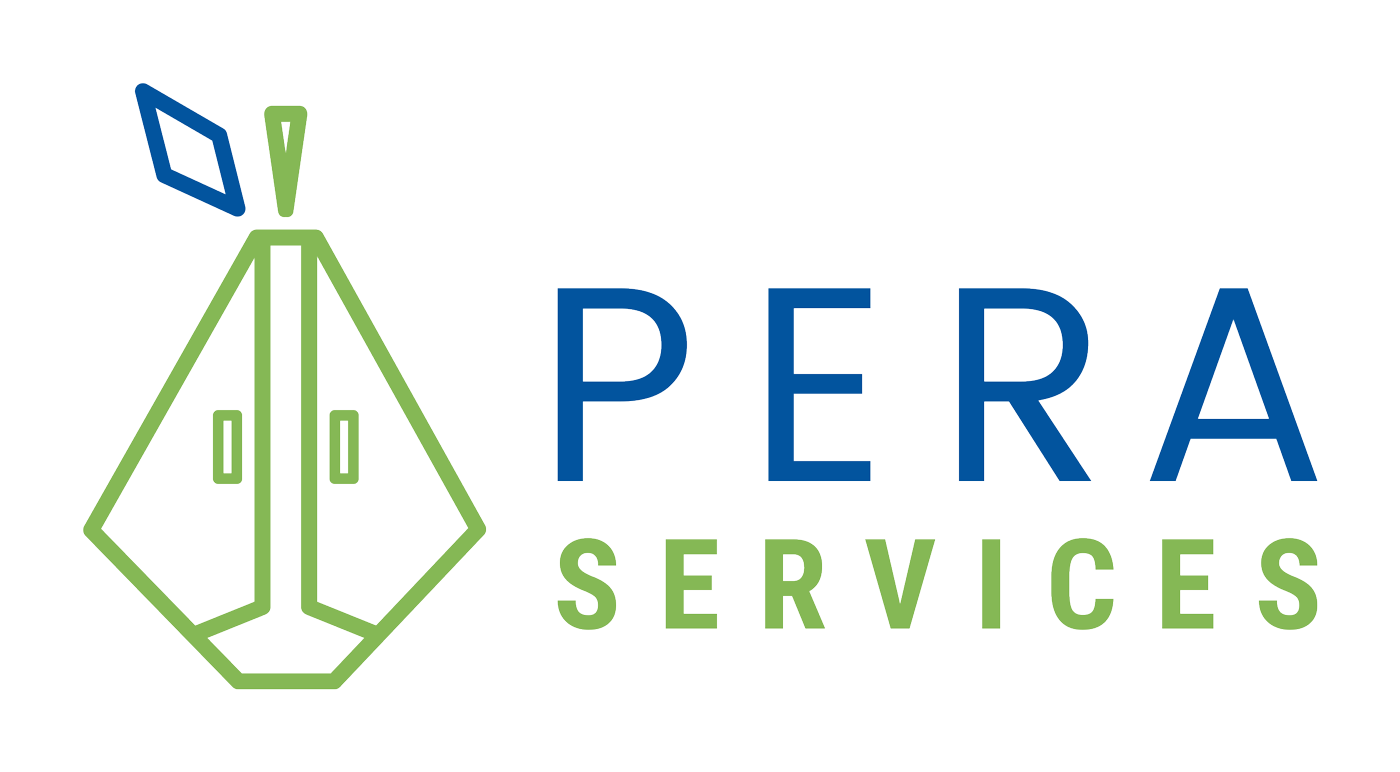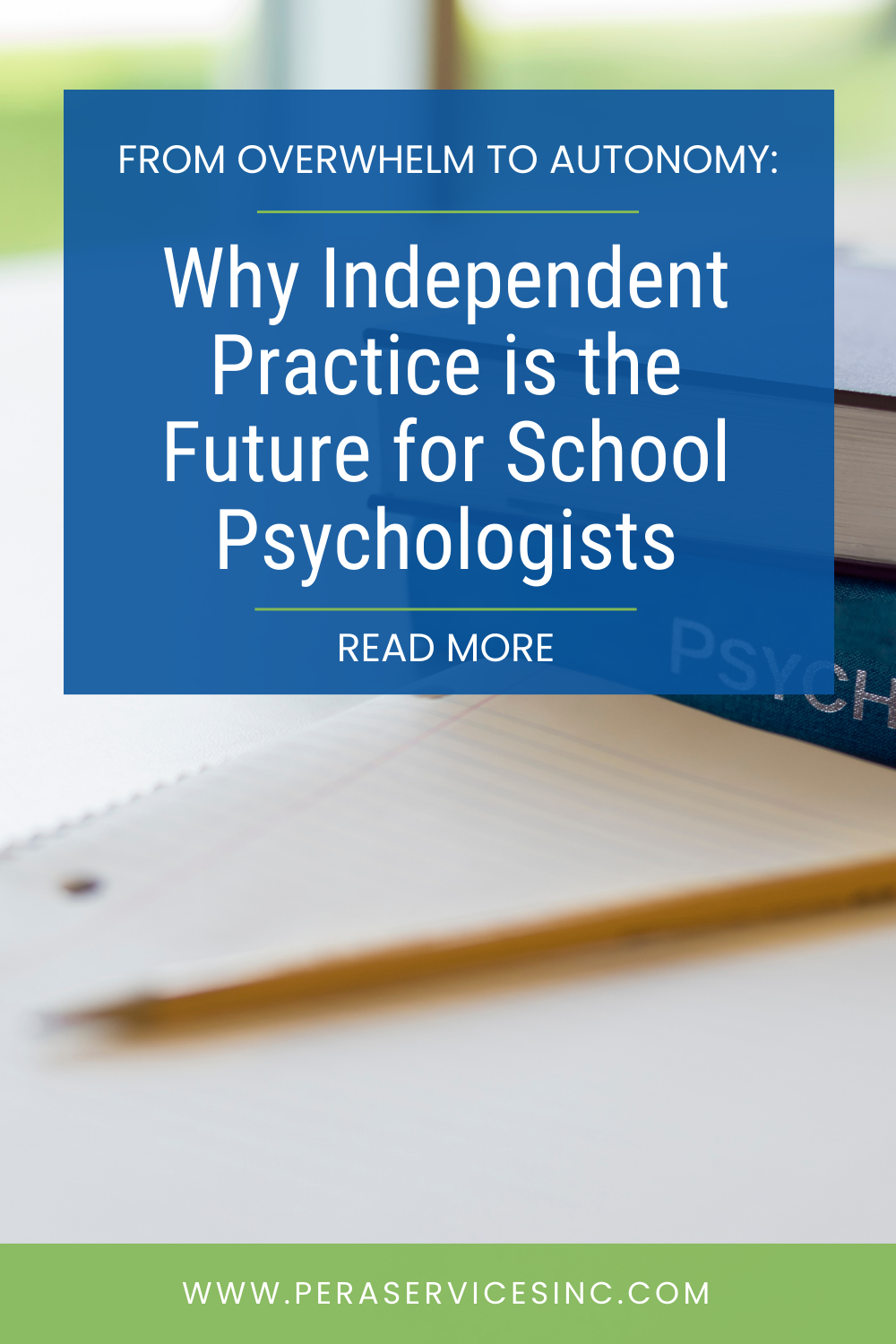From Overwhelm to Autonomy: Why Independent Practice is the Future for School Psychologists
By Juliana Ramirez, EdS NCSP
Owner and Founder of PERA Services®
Independent School Psychology
Burnout Prevention
Benefits of Independent Practice
School Psychologist Well-being
Career Fulfillment
Do you ever feel like you’re drowning in a sea of paperwork, meetings, and bureaucracy? Trust me, I’ve been there. Balancing a demanding job with personal life is tough, especially when you’re passionate about making a difference in the lives of students. But what if I told you there’s a way to reclaim your time, reduce burnout, and find the autonomy you’ve been craving? Let’s talk about why independent practice is the future for school psychologists like us.
Overwhelmed school psychologist facing burnout from endless paperwork and meetings.
Image Description: A woman with her hands on her face, sitting in front of a laptop, looking stressed and tired, symbolizing the burnout and overwhelm faced by school psychologists in the public school system.
The Overwhelmed School Psychologist: A Common Story
Let me take you back to my early days in the public school system. I was fresh out of grad school, eager to put my skills to use. But soon enough, the reality hit me—endless meetings, tight deadlines, and the constant feeling of being pulled in a million directions. It was overwhelming! I felt like all I did was get consent, test, evaluate, meet, and then started again… it was a rinse and repeat cycle.
Sound familiar? If you’re nodding your head, you’re not alone. Many of us enter this field with a burning desire to help, only to find ourselves bogged down by administrative tasks and systemic constraints. It’s no wonder burnout rates are high among school psychologists.
The Shift: From Overwhelm to Autonomy
After years of feeling stuck, I made a bold decision—to transition to independent practice. And let me tell you, it was a game-changer. Imagine having the freedom to set your own schedule, choose the cases you’re passionate about, and create a work-life balance that suits you. That’s what independent practice offers.
Why Independent Practice is the Future
1. Flexibility and Control: One of the biggest perks of independent practice is the flexibility it provides. You get to decide when, where, and how you work. No more rigid schedules or mandatory meetings. Want to take a long lunch to attend your child’s school play? Go for it!
2. Increased Income Potential: Working independently allows you to set your own rates and take on as many (or as few) clients as you want. This can significantly boost your income. Plus, you’ll finally feel that your hard work is being financially rewarded.
3. Personal Fulfillment: When you’re in control, you can focus on the aspects of your job that you love most. Whether it’s working directly with students, consulting with parents, or conducting evaluations, you get to tailor your practice to align with your passions.
4. Reduced Burnout: Autonomy and flexibility naturally lead to less stress and burnout. You can create a sustainable work environment that prioritizes your well-being, allowing you to provide better care for your clients.
5. Specialization and Ownership: Another significant benefit of independent practice is the ability to specialize in your areas of interest. You can become an expert in niches like bilingual evaluations or trauma-informed care, setting yourself apart in the field. Additionally, you get paid for every service you provide, not just the direct client time. You also don’t have to do the “other miscellaneous tasks as assigned” that come with being employed in a public school district. You own your business, giving you complete control over your professional path, and you are free from district politics, making decisions that best suit your practice and your clients.
Independent school psychologist enjoying the flexibility and autonomy of her practice.
A woman in a striped shirt and glasses, sitting in front of her laptop with a smile, her hands locked behind her head. She looks relaxed and content, working in a loft with a cup of coffee, symbolizing the benefits of independent practice for school psychologists.
Independent Practice vs. Private Practice in School Psychology
Before we dive deeper, let’s clarify a common confusion. Independent practice and private practice are often used interchangeably, but they’re not quite the same. Independent practice usually means working on your own terms, often contracting with schools or other institutions. Private practice, on the other hand, typically involves setting up a business where clients come to you directly, and you may offer a broader range of services. Private practice is the traditional brick-and-mortar business you’ve been told is the only option available to you if you want to leave the schools. It isn’t. There are always options, and both independent and private practice have their merits, but independent practice offers a unique blend of flexibility and stability that’s particularly appealing to school psychologists.
Image Description: Two women working together, facing a laptop, and collaboratively working on a website. This image symbolizes the networking and support among school psychologists transitioning to independent practice.
Taking the Leap: How to Get Started as an Independent School Psychologist
Making the transition to independent practice might seem daunting, but it’s absolutely doable with the right guidance and resources. Here’s a quick roadmap to get you started:
1. Educate Yourself: Start by understanding the legal and licensing requirements in your state. This will give you a clear picture of what’s needed to operate independently. To start, google: [scope of practice school psychologist + State + NASP] and see what you get.
2. Learn about the different models in school psychology businesses: Typically, you can either open a tradition private practice, start a business as an Independent Contractor, or pivot completely and leave the schools but not field and start a consulting or coaching business. Learn about the different business models and decide which one works for you, your goals, and your license.
3. Conduct Market Research: After having a clear understanding of what you can and cannot do with your current school psychologist license, go down the rabbit hole of market research. Investigate what your competitors are offering, what type of services are available in your community, and consider the needs of districts in your area and state. Learn where there is a demand for your future services, and what communities may want to work with you in the future.
4. Network: Begin building your network by reaching out to schools, parents, and fellow professionals. Utilize social media and online platforms to market your services and attract clients.
5. Seek Support: Don’t go at it alone! Join professional communities, seek mentorship, and invest in courses and workshops that can provide you with the knowledge and confidence you need. Get involved with your state association and start putting your name and your business name out there so people know about you.
Image Description: Scrabble pieces arranged to spell out 'If not now, when?' Let this be the motivational reminder for school psychologists to take the leap towards independent practice.
Ready to Take the Next Step and become an Independent School Psychologist?
If you’re ready to move from overwhelm to autonomy, I’ve got just the thing for you. Download my free guidebook, The Guidebook: Action Steps to Starting Your Independent Business in School PSychology, which provides a step-by-step plan to help you begin your journey.
Join the Conversation
I’d love to hear from you! What are your biggest challenges in transitioning to independent practice?
Stay in the know with future topics related to independent school psychology
Remember, you have the power to create a career that not only supports you but also reignites your passion for helping others. Here’s to a future filled with flexibility, fulfillment, and financial freedom!
Found this post helpful? Save it for later!
About Juliana
Juliana is a bilingual school psychologist in Independent Practice and the owner and founder of PERA Services Inc. Her business supports school districts in the state of Ohio with the evaluation of bilingual learners for Special Education. She also coaches and mentors school psychologists wanting to become independent and start a business. To learn more about her business and Juliana visit www.peraserivcesinc.com






